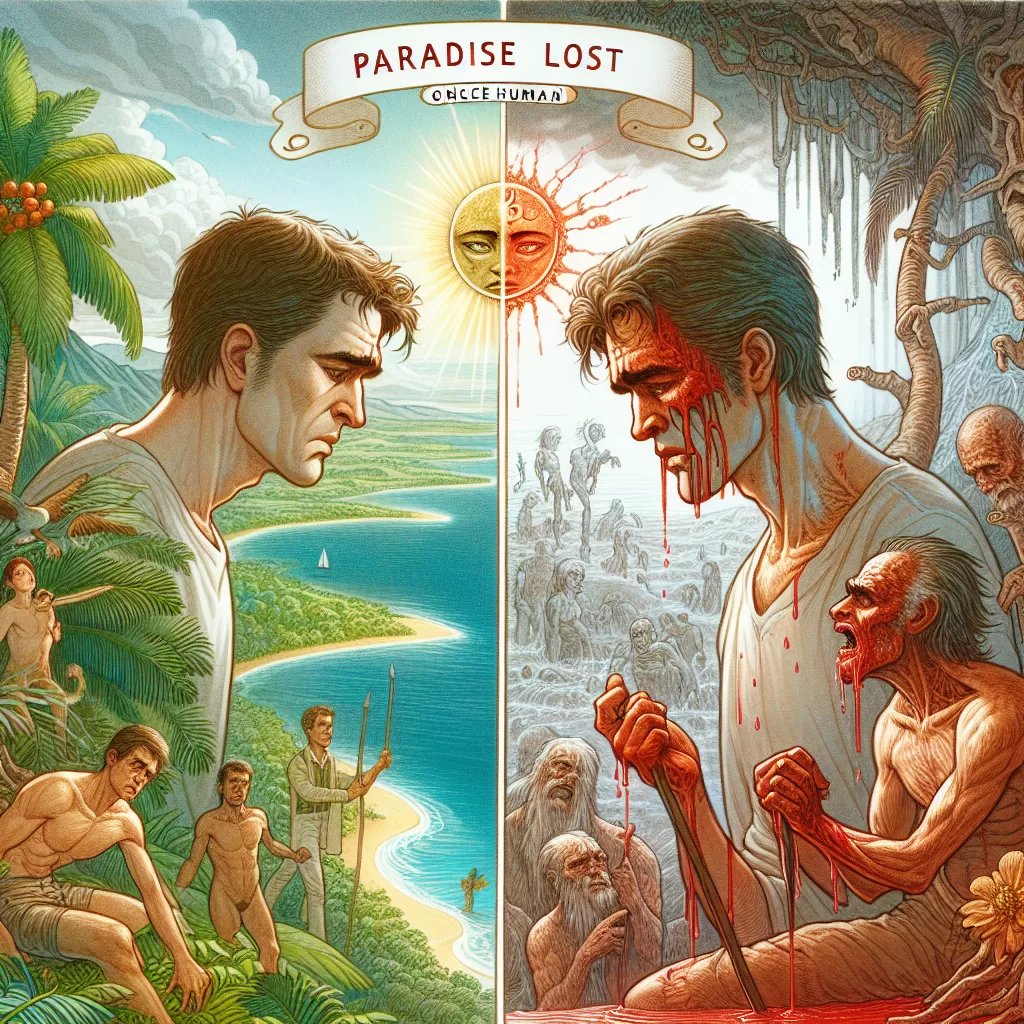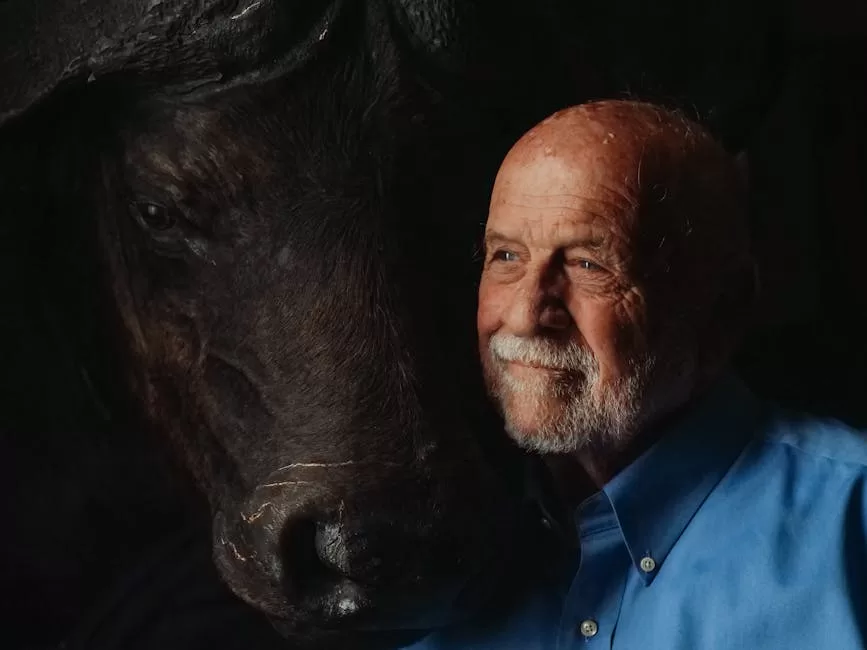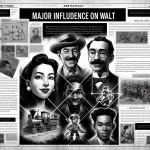-
Innholdsfortegnelse
“Paradise Lost” is an epic poem by John Milton that explores the biblical story of the Fall of Man, detailing the temptation of Adam and Eve by Satan and their subsequent expulsion from the Garden of Eden. The poem delves into themes of free will, obedience, and redemption, presenting a complex portrayal of good and evil. Key characters include Satan, the rebellious fallen angel; Adam, the first man created by God; Eve, the first woman and Adam’s companion; and God, who embodies divine authority and justice. Through its rich language and profound philosophical inquiries, “Paradise Lost” examines the human condition and the consequences of disobedience.
Summary of Paradise Lost
“Paradise Lost,” an epic poem by John Milton, is a profound exploration of the biblical story of the Fall of Man, encapsulating themes of free will, obedience, and redemption. The narrative unfolds in a grandiose manner, beginning with the rebellion of Satan and his followers, who are cast out of Heaven after a failed insurrection against God. This initial conflict sets the stage for the subsequent events that lead to the temptation of Adam and Eve, the first humans created by God. Milton’s portrayal of Satan is particularly striking; he is depicted as a complex character, embodying both charisma and malevolence. His famous declaration that it is “better to reign in Hell than serve in Heaven” encapsulates his defiance and ambition, establishing him as a tragic figure whose pride ultimately leads to his downfall.
As the poem progresses, the narrative shifts to the Garden of Eden, where Adam and Eve live in a state of innocence and bliss. Their relationship is characterized by harmony and mutual respect, reflecting an idealized vision of human existence. However, the tranquility of Eden is disrupted by Satan’s cunning plan to corrupt them. Disguised as a serpent, he tempts Eve to eat the forbidden fruit from the Tree of Knowledge, promising her enlightenment and godlike wisdom. This pivotal moment marks the transition from innocence to knowledge, as Eve succumbs to temptation and subsequently persuades Adam to join her in disobedience. The act of eating the fruit symbolizes the loss of innocence and the introduction of sin into the world, a theme that resonates throughout the poem.
Following their transgression, Adam and Eve experience a profound sense of shame and guilt, which leads to their expulsion from Paradise. This moment serves as a critical turning point in the narrative, illustrating the consequences of disobedience and the fragility of human nature. Milton’s exploration of free will is particularly significant here; while Adam and Eve are granted the freedom to choose, their choices ultimately lead to their downfall. This duality of free will—both a gift and a burden—underscores the complexity of human existence and the moral dilemmas faced by individuals.
In the aftermath of their expulsion, the poem delves into themes of redemption and hope. Despite the gravity of their sin, Milton emphasizes the possibility of salvation through repentance and faith. The character of Jesus emerges as a figure of grace, foreshadowing the eventual redemption of humanity. This notion of hope amidst despair is a recurring motif, suggesting that while the Fall has irrevocably altered the human condition, the potential for redemption remains ever-present.
In conclusion, “Paradise Lost” serves as a rich tapestry of themes and characters that explore the intricacies of human nature, the consequences of free will, and the enduring quest for redemption. Through its vivid imagery and profound philosophical inquiries, Milton’s work invites readers to reflect on the complexities of existence and the moral choices that define humanity. The interplay between innocence and experience, obedience and rebellion, ultimately culminates in a narrative that is as timeless as it is thought-provoking, leaving an indelible mark on the literary landscape.
Major Themes in Paradise Lost
“Paradise Lost,” John Milton’s epic poem, delves into profound themes that resonate with the human experience, exploring the complexities of free will, obedience, and the nature of good and evil. One of the most significant themes in the poem is the concept of free will, which is intricately woven into the narrative of humanity’s fall from grace. Milton presents the idea that Adam and Eve were endowed with the ability to choose, emphasizing that their disobedience was a result of their own decisions rather than predestined fate. This exploration of free will raises questions about responsibility and the consequences of one’s actions, suggesting that the capacity to choose is both a gift and a burden.
In addition to free will, the theme of obedience plays a crucial role in “Paradise Lost.” The poem illustrates the tension between divine authority and human autonomy, particularly through the relationship between God and His creations. Adam and Eve’s initial state of innocence is characterized by their obedience to God, yet it is this very obedience that is tested when they encounter the serpent. The narrative underscores the idea that obedience is not merely a passive acceptance of authority but an active choice that requires vigilance and strength. The tragic outcome of their disobedience serves as a cautionary tale about the fragility of human virtue and the ease with which one can succumb to temptation.
Moreover, the theme of the nature of good and evil is intricately explored throughout the poem. Milton presents a dualistic view of existence, where good and evil are not merely opposing forces but are deeply interconnected. The character of Satan embodies this complexity, as he transitions from a once-glorious angel to the embodiment of rebellion and malice. His motivations are rooted in pride and ambition, prompting readers to consider the nuances of evil and the factors that lead to its emergence. This portrayal invites reflection on the nature of temptation and the internal struggles that individuals face when confronted with moral dilemmas.
Another prominent theme in “Paradise Lost” is the idea of redemption and the possibility of salvation. Despite the catastrophic consequences of Adam and Eve’s actions, Milton ultimately offers a message of hope. The promise of redemption through Christ serves as a counterbalance to the despair of the fall, suggesting that even in the face of sin, there exists a pathway to forgiveness and restoration. This theme resonates with the human condition, as it reflects the perpetual struggle between despair and hope, emphasizing the importance of faith and the potential for renewal.
Furthermore, the theme of hierarchy and order is evident in Milton’s depiction of the cosmos. The poem presents a structured universe where God is the ultimate authority, and each being has its designated place. This hierarchical order is disrupted by the rebellion of Satan and his followers, leading to chaos and suffering. Milton’s portrayal of this cosmic order serves as a reminder of the importance of maintaining balance and harmony within both the divine realm and human society.
In conclusion, “Paradise Lost” is a rich tapestry of themes that explore the intricacies of human existence. Through its examination of free will, obedience, the nature of good and evil, redemption, and cosmic order, Milton invites readers to engage with profound philosophical questions that remain relevant across time. The poem not only reflects the struggles of its characters but also mirrors the eternal conflicts faced by humanity, making it a timeless work that continues to inspire contemplation and discourse.
Character Analysis of Satan in Paradise Lost
In John Milton’s “Paradise Lost,” the character of Satan emerges as one of the most complex and compelling figures in literary history. Initially depicted as a proud and ambitious angel, Satan’s transformation into the embodiment of evil is a central theme of the epic poem. His character serves not only as the antagonist but also as a tragic figure whose motivations and internal struggles invite readers to explore the nature of rebellion, free will, and the consequences of defiance against divine authority.
Satan’s journey begins in Heaven, where he holds a position of high esteem among the angels. However, his pride and desire for power lead him to challenge God, culminating in a rebellion that results in his expulsion from Paradise. This pivotal moment marks the beginning of his transformation from a once-noble being into the archetype of evil. Milton’s portrayal of Satan is multifaceted; he is not merely a villain but a character imbued with charisma and eloquence. His speeches are filled with rhetorical brilliance, showcasing his ability to manipulate and persuade others. This complexity raises questions about the nature of evil and whether it is inherent or a product of circumstance.
As Satan descends into Hell, he grapples with feelings of despair and isolation. Yet, rather than succumbing to hopelessness, he resolves to continue his fight against God. This determination highlights a significant aspect of his character: his unwavering commitment to his cause, even in the face of insurmountable odds. Satan’s famous declaration, “Better to reign in Hell than serve in Heaven,” encapsulates his defiance and refusal to submit to divine authority. This sentiment resonates with themes of individualism and the quest for autonomy, making Satan a figure that some readers may find relatable, despite his malevolent actions.
Moreover, Satan’s character is marked by a profound sense of alienation. As he navigates the desolate landscape of Hell, he is accompanied by fallen angels who share in his rebellion. Together, they form a community bound by their shared defiance, yet this camaraderie is tinged with bitterness and regret. The camaraderie among the fallen angels serves to emphasize the loneliness that accompanies their rebellion. While they may find solace in their shared plight, the reality of their situation underscores the emptiness of their victory. This duality within Satan’s character—his charisma juxtaposed with his isolation—invites readers to reflect on the nature of leadership and the burdens that come with it.
As the narrative progresses, Satan’s character evolves further, particularly in his interactions with Adam and Eve. His cunning and manipulative nature come to the forefront as he devises a plan to corrupt humanity. In this role, Satan embodies the archetype of the tempter, using deceit and persuasion to achieve his goals. His ability to exploit the vulnerabilities of others highlights the theme of free will, as Adam and Eve ultimately make their own choices, albeit influenced by Satan’s machinations. This interplay between temptation and choice raises profound questions about moral responsibility and the nature of sin.
In conclusion, Satan in “Paradise Lost” is a richly developed character whose complexity transcends the traditional boundaries of good and evil. Through his pride, ambition, and ultimate fall from grace, Milton crafts a figure that embodies the struggle for autonomy and the consequences of rebellion. As readers engage with Satan’s character, they are invited to explore deeper philosophical questions about the nature of evil, free will, and the human condition, making him one of the most enduring figures in literature.
The Role of Adam and Eve in Paradise Lost
In John Milton’s “Paradise Lost,” the roles of Adam and Eve are central to the narrative, embodying the complexities of human nature and the consequences of free will. As the first humans created by God, Adam and Eve represent the ideal state of innocence and harmony within the Garden of Eden. Their relationship is characterized by companionship and mutual support, reflecting the divine intention for humanity to live in unity with one another and with God. However, their roles also serve as a vehicle for exploring deeper themes of temptation, disobedience, and the fallibility of human nature.
Adam, as the first man, is depicted as a figure of strength and reason. He is endowed with intellect and the ability to communicate directly with God, which positions him as a leader in the newly created world. His relationship with Eve is one of admiration and love, yet it is also marked by a sense of responsibility. Adam’s role is not merely to enjoy the paradise around him but to cultivate and protect it. This duality of his character highlights the tension between free will and obedience, as Adam grapples with the implications of his choices. His eventual decision to partake in the forbidden fruit, driven by love for Eve, underscores the theme of sacrifice and the complexities of human emotions.
Eve, on the other hand, is portrayed as a figure of beauty and curiosity. Created from Adam’s rib, she symbolizes companionship and the potential for partnership in the human experience. Her character embodies the qualities of innocence and vulnerability, yet she also possesses a strong desire for knowledge and understanding. This quest for knowledge ultimately leads her to encounter Satan, who tempts her with the promise of enlightenment. Eve’s decision to eat the fruit is pivotal, as it not only signifies her fall but also catalyzes Adam’s own downfall. This moment encapsulates the theme of temptation and the consequences of disobedience, illustrating how the pursuit of knowledge can lead to unforeseen repercussions.
The dynamic between Adam and Eve is further complicated by their differing responses to temptation. While Adam is portrayed as more contemplative and hesitant, Eve’s initial curiosity drives her to act impulsively. This contrast highlights the complexities of their characters and the varying ways individuals may respond to moral dilemmas. Their eventual choice to disobey God serves as a profound commentary on the nature of free will, suggesting that even in a state of innocence, the potential for error exists. The act of eating the forbidden fruit not only results in their expulsion from Eden but also signifies the loss of innocence and the introduction of sin into the human experience.
Moreover, the roles of Adam and Eve in “Paradise Lost” extend beyond their individual actions; they symbolize the broader human condition. Their experiences reflect the struggles inherent in the human journey, including the quest for identity, the desire for autonomy, and the consequences of choices made in the face of temptation. Through their narrative, Milton explores the complexities of love, responsibility, and the inherent flaws of humanity. Ultimately, Adam and Eve’s roles serve as a poignant reminder of the delicate balance between freedom and obedience, illustrating that the pursuit of knowledge and understanding, while noble, can lead to profound consequences when it strays from divine guidance. In this way, their story resonates with readers, inviting reflection on the nature of humanity and the enduring struggle between good and evil.
The Concept of Free Will in Paradise Lost
In John Milton’s epic poem “Paradise Lost,” the concept of free will emerges as a central theme that intricately weaves through the narrative, shaping the actions and motivations of its characters. The poem explores the profound implications of free will, particularly in the context of the biblical story of the Fall of Man. Milton presents free will not merely as a philosophical abstraction but as a vital aspect of human existence that defines the relationship between humanity and the divine. Through the choices made by Adam and Eve, the poem delves into the complexities of obedience, temptation, and the consequences of moral agency.
At the heart of “Paradise Lost” lies the notion that free will is a gift bestowed upon humanity by God. This divine endowment allows Adam and Eve to choose between good and evil, thereby granting them the dignity of moral responsibility. Milton emphasizes that true obedience arises from a voluntary choice rather than coercion. In this light, the characters’ decisions are not merely reactions to external forces but are reflective of their inner moral compass. The freedom to choose is portrayed as a double-edged sword; while it enables the potential for love and loyalty to God, it also opens the door to disobedience and sin.
The character of Satan serves as a pivotal figure in the exploration of free will. Initially, he embodies the archetype of rebellion against divine authority, choosing to defy God in his quest for autonomy. His famous declaration, “Better to reign in Hell than serve in Heaven,” encapsulates his belief in the value of free will, albeit twisted by pride and ambition. However, Milton complicates this notion by illustrating that Satan’s exercise of free will ultimately leads to his own destruction. His choices, driven by envy and a desire for power, result in a profound alienation from God and a descent into despair. Thus, while Satan’s rebellion highlights the potential for free will to lead to greatness, it simultaneously serves as a cautionary tale about the perils of misusing that freedom.
In contrast, Adam and Eve’s choices reflect a more nuanced understanding of free will. Their initial state in the Garden of Eden is one of innocence and harmony, where they enjoy a direct relationship with God. However, the introduction of temptation by Satan complicates their exercise of free will. The serpent’s persuasion leads Eve to question God’s command, ultimately resulting in the fateful decision to eat from the Tree of Knowledge. This act of disobedience signifies a pivotal moment in the narrative, illustrating how the misuse of free will can have catastrophic consequences. Milton portrays their choice not as a mere act of rebellion but as a tragic fall from grace, underscoring the weight of their moral agency.
Moreover, the aftermath of their choice reveals the profound implications of free will on human existence. Adam and Eve’s expulsion from Eden signifies not only a loss of innocence but also the burden of knowledge and the awareness of their own moral failings. In this sense, Milton suggests that with free will comes the responsibility to navigate the complexities of good and evil. The characters’ journey reflects the broader human experience, where the struggle between obedience and temptation continues to resonate through the ages.
In conclusion, “Paradise Lost” presents free will as a fundamental aspect of the human condition, intricately linked to themes of obedience, temptation, and moral responsibility. Through the choices of its characters, Milton invites readers to reflect on the nature of freedom and its consequences, ultimately suggesting that the exercise of free will is both a privilege and a profound challenge. The poem serves as a timeless exploration of the delicate balance between autonomy and accountability, illuminating the enduring struggle between good and evil in the human experience.
The Influence of Paradise Lost on Literature
John Milton’s “Paradise Lost,” published in 1667, stands as a monumental work in the canon of English literature, influencing countless writers, poets, and thinkers across generations. Its profound exploration of themes such as free will, redemption, and the nature of good and evil has resonated deeply within the literary community, prompting a rich tapestry of responses and adaptations. The epic poem not only redefined the boundaries of poetic form but also established a framework for subsequent literary explorations of morality and human experience.
One of the most significant impacts of “Paradise Lost” is its complex portrayal of Satan, who has often been interpreted as a tragic hero. This nuanced characterization has inspired a myriad of literary figures who grapple with themes of rebellion and ambition. For instance, the Romantic poets, particularly William Blake and Percy Bysshe Shelley, drew upon Milton’s depiction of Satan to explore the nature of the individual against societal constraints. Blake famously referred to Milton as a “devil,” suggesting that the poet’s portrayal of Satan was not merely a representation of evil but rather an embodiment of the struggle for personal freedom and self-definition. This reinterpretation of Milton’s work has led to a broader understanding of the human condition, emphasizing the complexities of moral choice and the consequences of defiance.
Moreover, “Paradise Lost” has significantly influenced the genre of science fiction and fantasy literature. Authors such as John Milton’s contemporary, John Bunyan, and later writers like C.S. Lewis and J.R.R. Tolkien, have drawn upon the epic’s themes of cosmic struggle and the battle between good and evil. In particular, Tolkien’s “The Lord of the Rings” reflects Miltonic elements through its grand narrative of a fallen world striving for redemption. The archetypal conflict between light and darkness, as well as the exploration of free will, can be traced back to Milton’s foundational text, demonstrating how “Paradise Lost” has shaped the thematic underpinnings of modern fantasy literature.
In addition to its thematic influence, “Paradise Lost” has also left an indelible mark on narrative structure and poetic form. Milton’s innovative use of blank verse and his ability to weave complex theological and philosophical ideas into a cohesive narrative have inspired poets and writers to experiment with form and style. The fluidity of his language and the grandeur of his imagery have encouraged subsequent generations to push the boundaries of poetic expression. For example, the works of poets such as T.S. Eliot and W.H. Auden reflect Milton’s influence in their use of allusion and intertextuality, as they engage with the weighty themes of existence and morality that Milton so masterfully articulated.
Furthermore, the enduring relevance of “Paradise Lost” can be seen in its continued presence in contemporary discussions surrounding ethics, politics, and theology. The poem’s exploration of free will and the nature of sin remains pertinent in modern philosophical debates, prompting readers to reflect on the implications of their choices in a complex world. As such, Milton’s work transcends its historical context, inviting ongoing dialogue about the human experience and the moral dilemmas that define it.
In conclusion, the influence of “Paradise Lost” on literature is both profound and far-reaching. Its exploration of complex themes, innovative narrative techniques, and rich characterizations have inspired countless writers and thinkers, ensuring that Milton’s legacy endures in the literary landscape. As readers continue to engage with this seminal work, they are reminded of the timeless questions it raises about humanity, morality, and the eternal struggle between good and evil.
The Symbolism of Paradise in Paradise Lost
In John Milton’s “Paradise Lost,” the concept of paradise serves as a multifaceted symbol that encapsulates the themes of innocence, temptation, and the profound consequences of disobedience. The Garden of Eden, depicted as a lush and idyllic setting, represents not only the physical embodiment of paradise but also the spiritual state of humanity before the fall. This pristine environment is characterized by its abundance, beauty, and harmony, reflecting the divine order established by God. The garden is a place where Adam and Eve exist in a state of blissful innocence, free from sin and the burdens of knowledge. This initial state of paradise symbolizes the ideal relationship between humanity and the divine, where humans are in perfect communion with God and nature.
However, as the narrative unfolds, the symbolism of paradise becomes increasingly complex. The introduction of the serpent, a representation of temptation and evil, disrupts the tranquility of Eden. The serpent’s cunning persuasion leads Eve to eat the forbidden fruit, an act that signifies the loss of innocence and the beginning of humanity’s estrangement from God. This pivotal moment illustrates the theme of free will, as Adam and Eve are faced with the choice to obey or defy divine command. The act of disobedience not only results in their expulsion from paradise but also serves as a profound commentary on the human condition. The loss of paradise symbolizes the transition from a state of innocence to one of knowledge and awareness, where the consequences of choice become painfully evident.
Moreover, the expulsion from Eden signifies a broader existential struggle. The once harmonious relationship between humanity and the divine is irrevocably altered, leading to a world marked by suffering, toil, and mortality. This transformation highlights the theme of redemption, as the narrative suggests that while paradise is lost, the possibility of regaining a semblance of that state exists through faith and repentance. Milton’s portrayal of paradise thus serves as a dual symbol: it represents both the ultimate ideal of human existence and the profound loss that accompanies the exercise of free will. The tension between these two aspects underscores the complexity of the human experience, where the pursuit of knowledge and autonomy can lead to both enlightenment and despair.
In addition to the physical representation of paradise, the characters of Adam and Eve embody the symbolic weight of this theme. Adam, as the archetypal man, represents reason and obedience, while Eve embodies curiosity and the desire for knowledge. Their interactions and choices reflect the broader human struggle between adherence to divine will and the allure of autonomy. The dynamics of their relationship further illustrate the complexities of temptation and the consequences of yielding to it. As they navigate their existence in Eden, their eventual fall serves as a cautionary tale about the fragility of paradise and the inherent risks of free will.
Ultimately, the symbolism of paradise in “Paradise Lost” transcends its literal interpretation, inviting readers to reflect on the nature of humanity, the complexities of choice, and the enduring quest for redemption. Through the rich tapestry of Eden’s imagery and the profound implications of its loss, Milton crafts a narrative that resonates with timeless themes, prompting contemplation on the delicate balance between innocence and knowledge, obedience and rebellion. In this way, “Paradise Lost” remains a powerful exploration of the human condition, inviting readers to grapple with the enduring questions of existence and morality.
SPØRSMÅL OG SVAR
1. **What is the summary of “Paradise Lost”?**
“Paradise Lost” is an epic poem by John Milton that narrates the biblical story of the Fall of Man, detailing the rebellion of Satan and his followers, the temptation of Adam and Eve, and their eventual expulsion from the Garden of Eden.
2. **What are the main themes of “Paradise Lost”?**
Key themes include free will, obedience, the nature of sin, redemption, and the conflict between good and evil.
3. **Who are the main characters in “Paradise Lost”?**
The main characters include Satan, Adam, Eve, God, and the archangels Michael and Gabriel.
4. **How is Satan portrayed in “Paradise Lost”?**
Satan is depicted as a complex character, embodying pride and ambition, often seen as a tragic figure who struggles against divine authority.
5. **What role does free will play in “Paradise Lost”?**
Free will is central to the poem, emphasizing that Adam and Eve’s choice to disobey God leads to their fall, highlighting the importance of personal responsibility.
6. **What is the significance of the Garden of Eden in the poem?**
The Garden of Eden represents innocence, purity, and the ideal state of humanity before the Fall, serving as a stark contrast to the consequences of sin.
7. **How does “Paradise Lost” address the concept of redemption?**
The poem suggests that while humanity falls into sin, redemption is possible through repentance and faith, ultimately pointing to the promise of salvation through Christ.”Paradise Lost” by John Milton explores the themes of free will, obedience, and the nature of good and evil through the story of humanity’s fall from grace. The narrative centers on the rebellion of Satan and the subsequent temptation of Adam and Eve, leading to their expulsion from the Garden of Eden. Key characters include Satan, who embodies pride and ambition; Adam, representing humanity’s potential for goodness; and Eve, who symbolizes both innocence and vulnerability. The poem ultimately reflects on the consequences of disobedience and the complexity of human nature, emphasizing the importance of redemption and the hope for salvation despite the fall.







